 Your new post is loading...
 Your new post is loading...

|
Scooped by
Jeff Domansky
May 13, 2016 4:03 PM
|
Big box retailer stocks are getting hit hard Wednesday, following Macy's dismal earnings report.
Macy's shares are down 13%, while some of the largest retailers like Sears, Target, and Nordstrom all dropped by at least 5% during the day.
Amidst all this, Amazon, the online retailer that just opened its first physical store last year, is trading at an all-time high, reflecting a clear shift in consumer behavior.
The growth of online shopping is nothing new. But this chart that compares the 12-month stock movement of Amazon, Walmart, Macy's, Target, and the retail index fund "XRT" clearly illustrate the online retailer's growing dominance in this space:...

|
Scooped by
Jeff Domansky
March 18, 2016 11:07 PM
|
In a recent Investor’s Business Daily article, author Max Cherney outlines how Amazon’s new Prime Now is poised to help the retailer’s Prime loyalty programme “destroy the advantage that Walmart, Target and others hope to gain by offering online orders, in-store pickup and stores as warehouses for online deliveries.” Long considered one of retail’s most effective loyalty programmes with a purported 54 million members, the addition of Prime Now in 26 US markets may put Amazon yet another step ahead of the competition in the multichannel retail wars.
Cherney references a recent Wells Fargo report by analyst Matt Nemer that describes Prime Now as “a move to dominate ‘Need it Now’ shopping. Prime Now, available only to Amazon Prime members in those 26 markets, offers free two-hour shipping on over 30,000 products and one-hour shipping for a $7.99 delivery fee. Money quote from Cherney:
Amazon’s push may eliminate a key advantage of physical retailers — the last-mile convenience of being able to get something immediately. As that advantage disappears, so do other advantages touted by brick-and-mortar stores, such as the ability to pick up an online order quickly at your local store… In the research note, Nemer says that Prime Now, though not currently profitable, helps Amazon retain Prime member loyalty and will, with scale, become profitable.
Wells Fargo isn’t the only analyst bullish on Amazon’s Prime investment. In a recent anal...

|
Scooped by
Jeff Domansky
February 26, 2016 10:40 AM
|
The e-retailer, which has had trouble getting some apparel manufacturers to sell to it wholesale, is now selling apparel for women, men and kids under its own brands. Here’s a close look at these Amazon brands and their prospects.
Amazon.com Inc. over the last eight months rolled out a series of Amazon-owned private-label apparel brands. The lines follow through on plans previously hinted at by Amazon executives, and represent a way for Amazon to become a bigger force in apparel, a segment where it’s been limited by the reluctance of some higher-end fashion brands to sell to Amazon.
KeyBanc Capital Markets analyst Edward Yruma identified the brands in a research note released earlier this week based on his research. Amazon has not commented or confirmed the brands directly, but Internet Retailer located trademark applications filed by Amazon Technologies Inc. for six of the seven brands dating to March 2015. Amazon did not respond to inquiries....

|
Scooped by
Jeff Domansky
November 7, 2015 3:33 AM
|
The online marketplace isn’t afraid of chewing brands up and spitting them out, and it has never been more important for brands to ensure their digital offerings rise above the rest. Here’s why developing a strong sense of consumer trust is do or die…
In today’s digital-first world, consumers have a weapon at hand for cutting through the communication crowding their attention: choice.
When it comes to the services and products they allow into their daily lives, consumers prioritise and discern based on personal interest and time available. The implication for brands is to appreciate that their customers’ attention is a privilege, and to deserve it their content should be personalised. When executed properly, brands undoubtedly reap the rewards of building and maintaining customer confidence....
“Amazon may not actually be the lowest-priced seller of a particular product in any given season,” the report reads, “but its consistently low prices on the highest-viewed and best-selling items drive a perception among consumers that Amazon has the best prices overall — even better than Walmart.”
The study was part of a white paper Boomerang released on Tuesday to bring attention to the idea of price perception in e-commerce. The startup has created a “price perception index,” which it described as “a numerical pricing model that captures customer psychology of price perception. It does so by providing a tangible statistic of how a company’s products…are priced, relative to the competition, weighted by customer interest.”...
Via Douglas G Hall
|

|
Scooped by
Jeff Domansky
May 11, 2016 5:04 PM
|
While assessing the coverage of the launch of Amazon Video Direct—Jeff “Mr. Everything Store” Bezos’ gutsy challenge to YouTube—the figure $3 billion jumped out at me. That’s how much industry analysts estimate Amazon spends on video each year in its relentless drive to dominate on a playing field where YouTube, Facebook, Hulu and myriad others have plenty of pixels in the game.
Amazon’s multibillion-dollar appetite for video supremacy also includes cable companies as rivals. The product delivery giant recently began to offer its Amazon Prime streaming service, initially available only to those paying $99 a year for a Prime membership, as a standalone, for a $9 monthly fee, a buck less than Netflix. It’s also been cutting deals with myriad players and is eventually expected to offer a tailored bundle of programming services in a so-called “skinny bundle” package to lure the cord-shavers and cutters.
Yesterday’s Amazon Direct launch is a typically straight shot from the Bezos playbook. It puts a laser focus both on those who create the content, and on the customer experience. In contrast to YouTube, Amazon Direct is allowing those who make the videos to distribute and profit in a variety of ways, including: making their content available to Prime Video subscribers and receiving a per-hour royalty fee; offering them as rentals or sold as subscription through its Streaming Partners Program; and putting the videos up for digital rental or purchase. Producers can also opt to offer videos free in an ad-supported model with a 55% share of revenues—same as YouTube.

|
Scooped by
Jeff Domansky
March 17, 2016 10:34 PM
|
There’s no way around it—the past year has been rough for retail. Even the stalwarts have taken a hit: Nordstrom had a terrible run on NASDAQ; Macy's cratered, with its stock ending 2015 40% down for the year; and Walmart is shutting down over 250 stores nationwide. Why so much bad news, so fast?
Well, there are a few incidental reasons, such as an economy that has people saving instead of spending, and an unseasonably warm Q4 that kept families away from seasonal purchases, like a new space heater or down jacket. But, it’s also about a little company in Seattle called Amazon, which is steadily eating the world of retail. And when we say eating, we mean in one bite; according to The Motley Fool, about one of every three product searches begins at Amazon.
Just think about what this means for other retailers. A third of their potential customers are starting at their competitors’ front door, leaving them clamoring for scraps and losing costly acquisition dollars (and margin) to the likes of Google and, increasingly, Facebook. And as Amazon enhances Prime, their base of customers grows and becomes increasingly loyal....

|
Scooped by
Jeff Domansky
December 11, 2015 2:32 AM
|
DIVE BRIEF: Some 40% of all adults “always” or “most of the time” search Amazon, compared to 10% who say they never do, according to the latest CNBC All-America Economic Survey.
And half of Americans searching Amazon also make a purchase there, compared to the paltry 3% that retailers on average see search turn to purchase, the survey found.
The phenomenon is an all ages affair. While most consumers searching Amazon are in general younger, wealthier, better educated, and more likely to live on the West or East coasts, Amazon also snags 41% of American consumers 65 years old or older for search on its site, and almost half of them also buy....

|
Scooped by
Jeff Domansky
August 28, 2015 1:32 AM
|
The New York Times published a brutal takedown of Amazon culture this past weekend. Amazon CEO Jeff Bezos sent around an internal email to deny the charges. But Bezos’ reply is so weak, it makes you wonder if his heart it is in it.

|
Scooped by
Jeff Domansky
February 20, 2014 7:15 PM
|
Amazon sure has evolved over the past 20 years. Starting out as predominantly an online bookstore, they have grown significantly into the digital retailer of choice for consumers in the U.S. and beyond.
So here you have it: every interesting Amazon statistic I could dig up. As always, if I stumble across more Amazon statistics that are worth sharing I will be sure to update this post....
|





 Your new post is loading...
Your new post is loading...



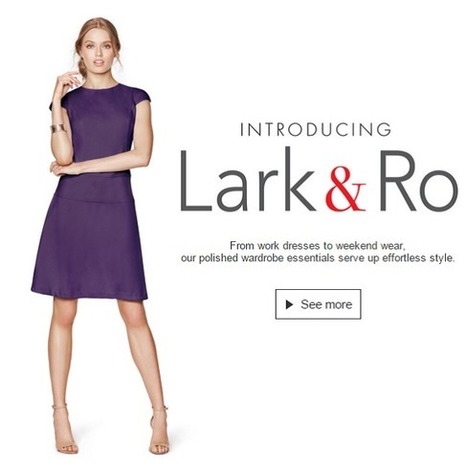

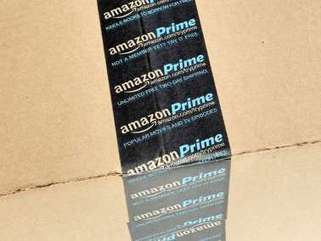


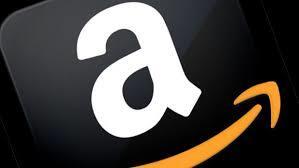


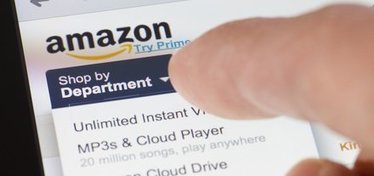

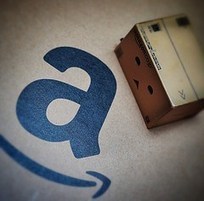





Retailers online and off-line struggle while Amazon crushes it.